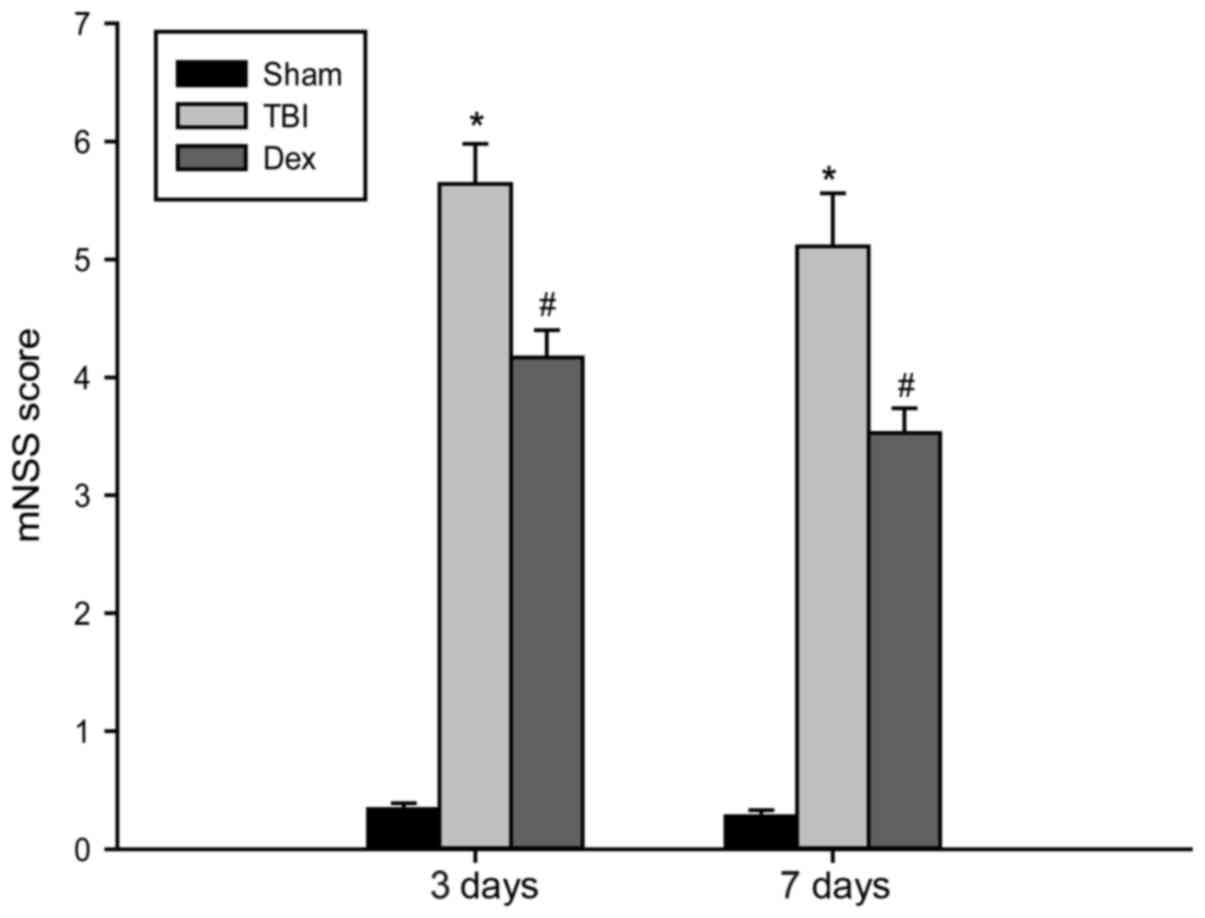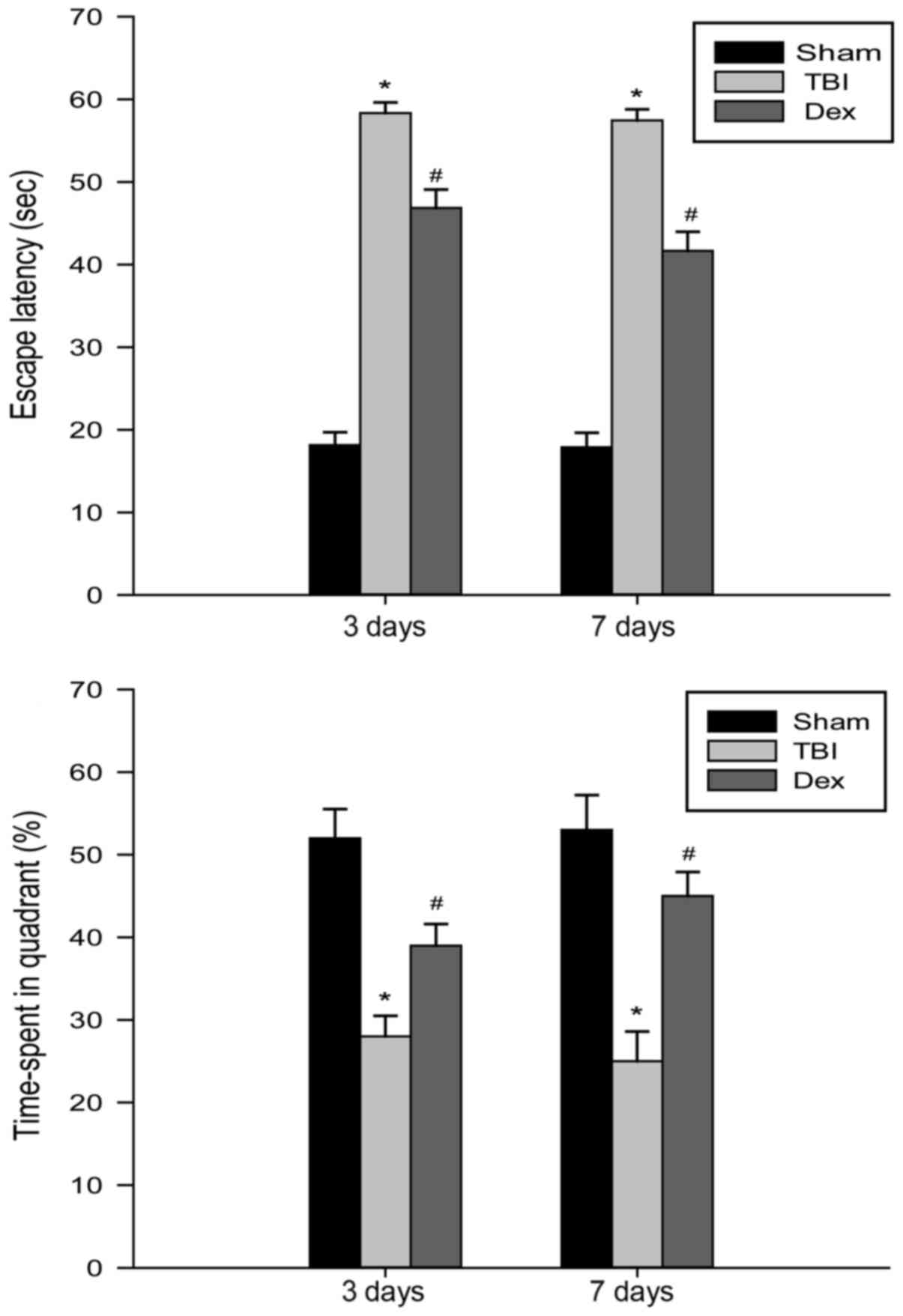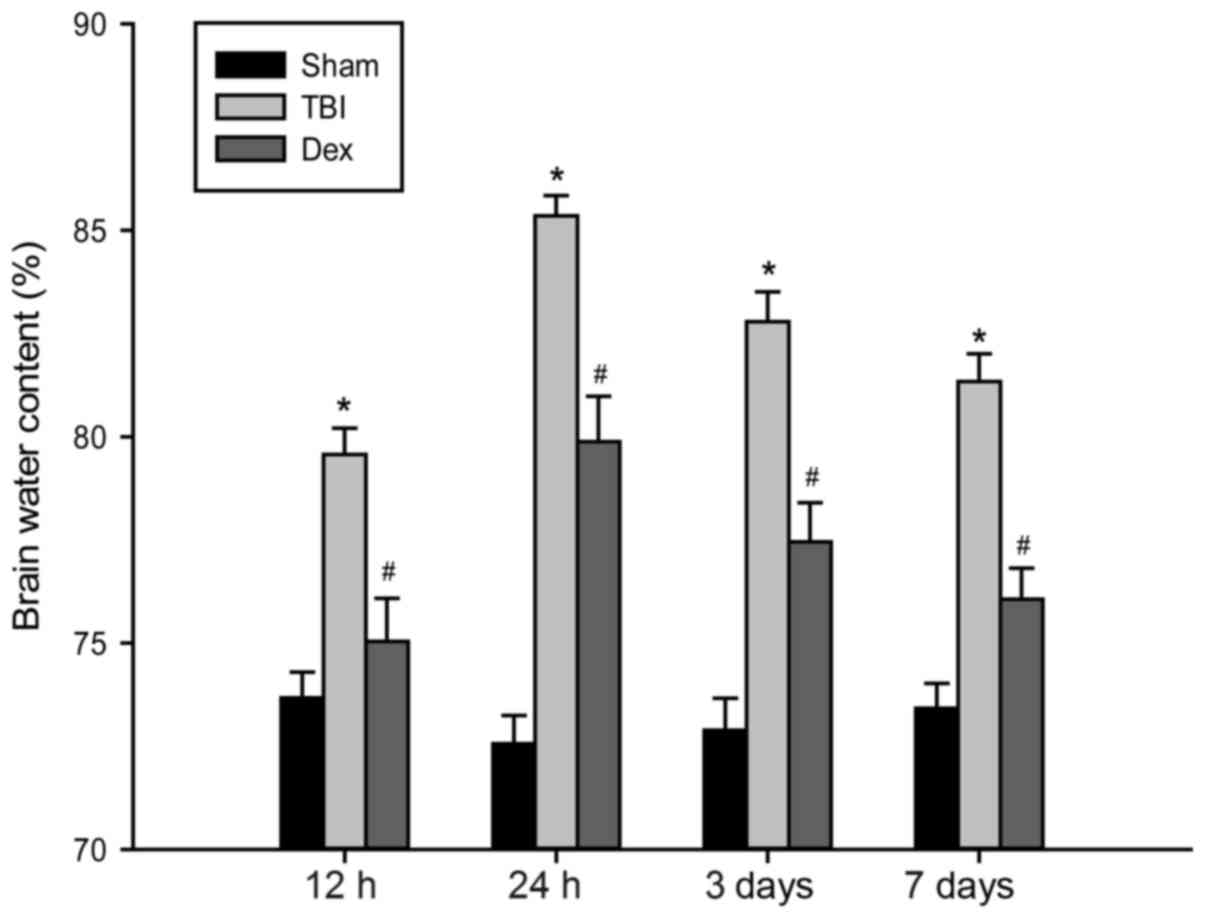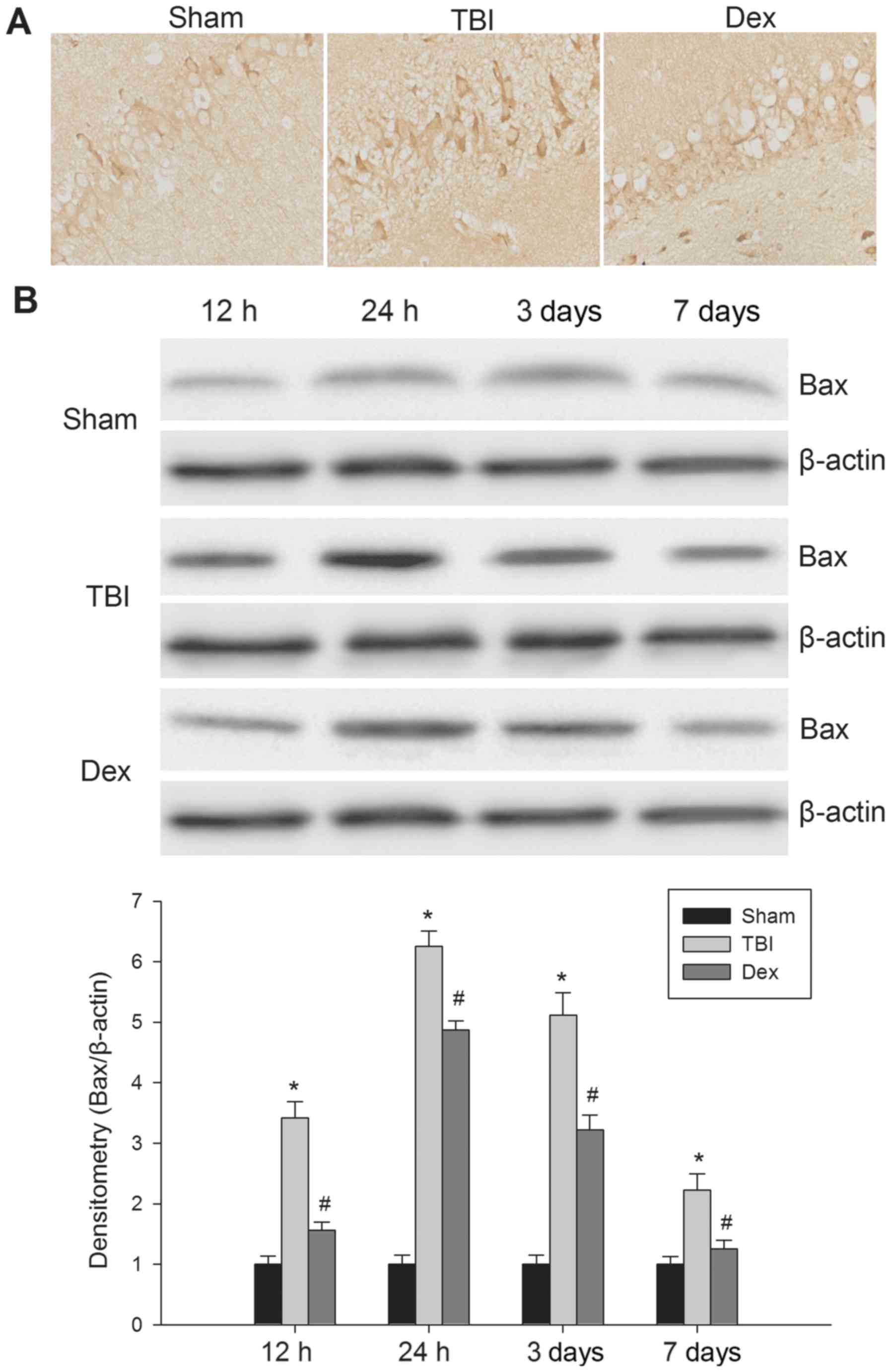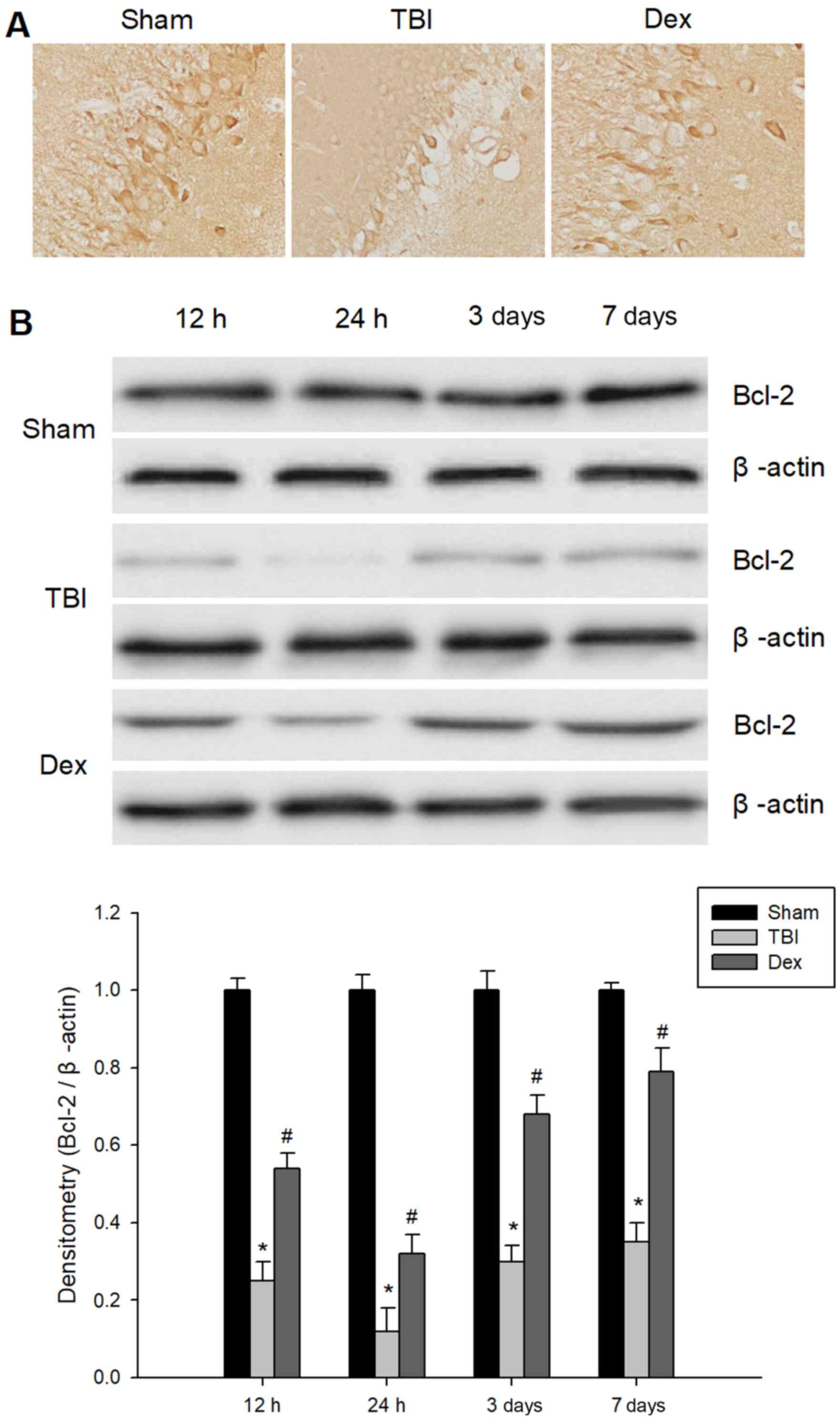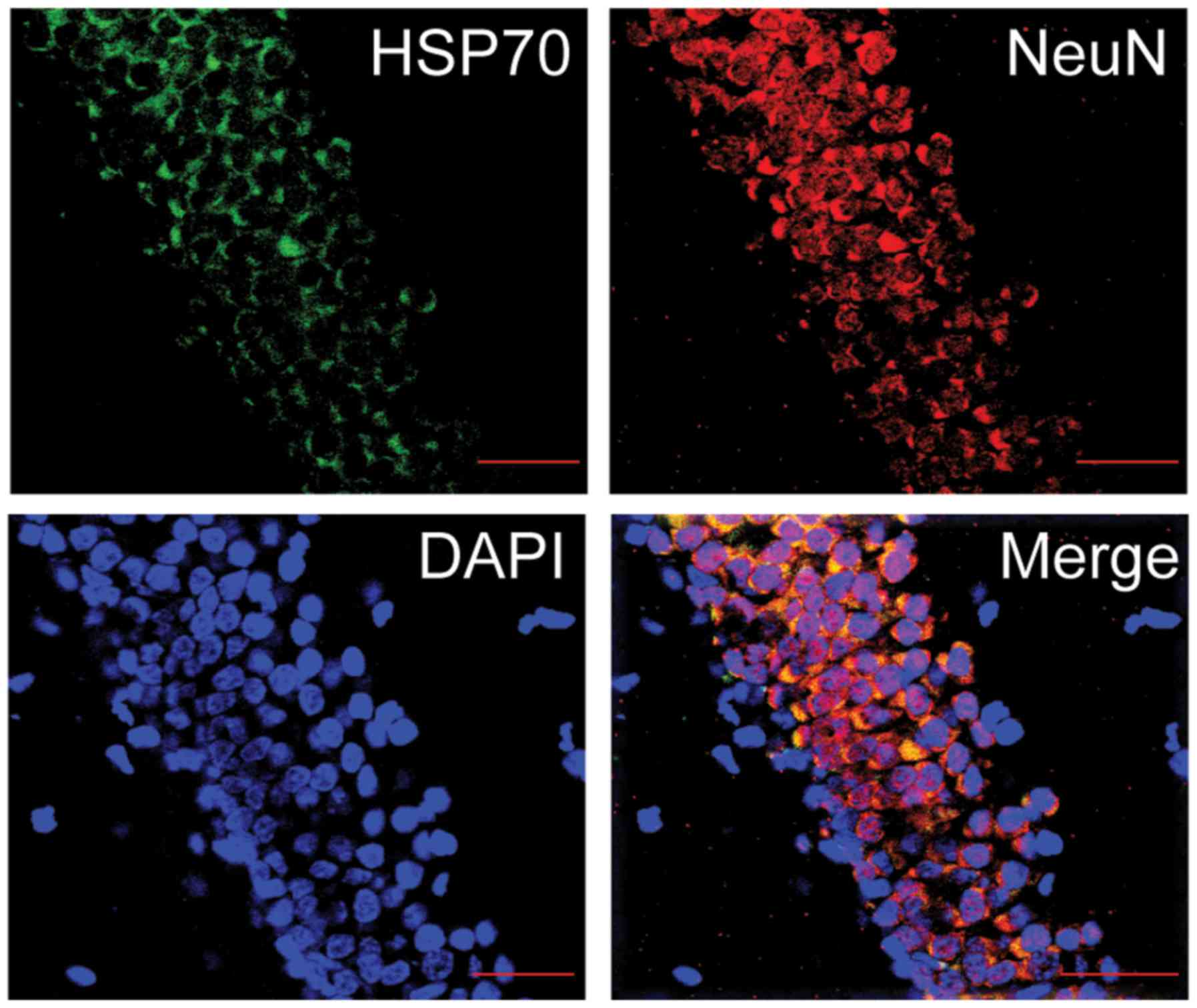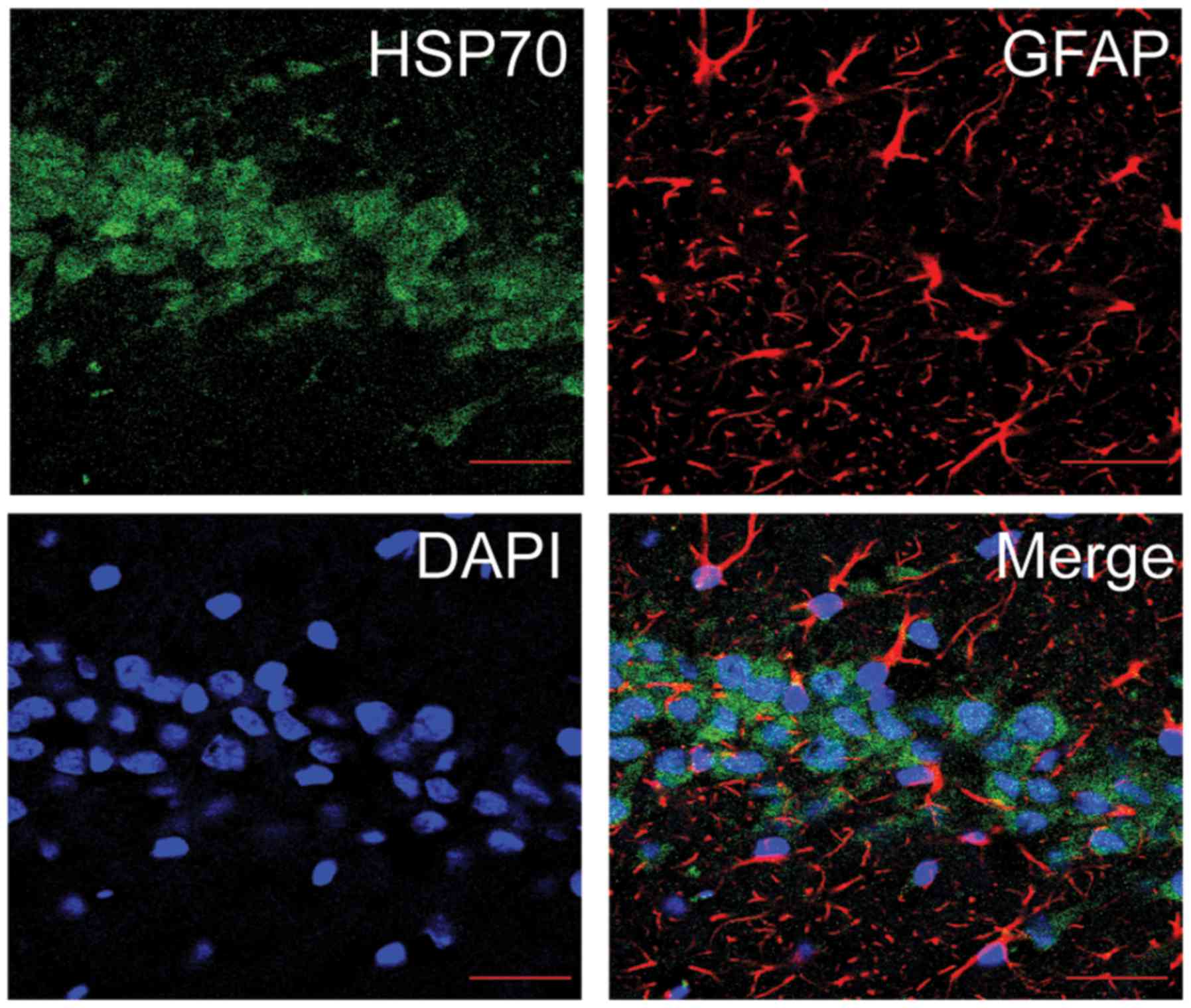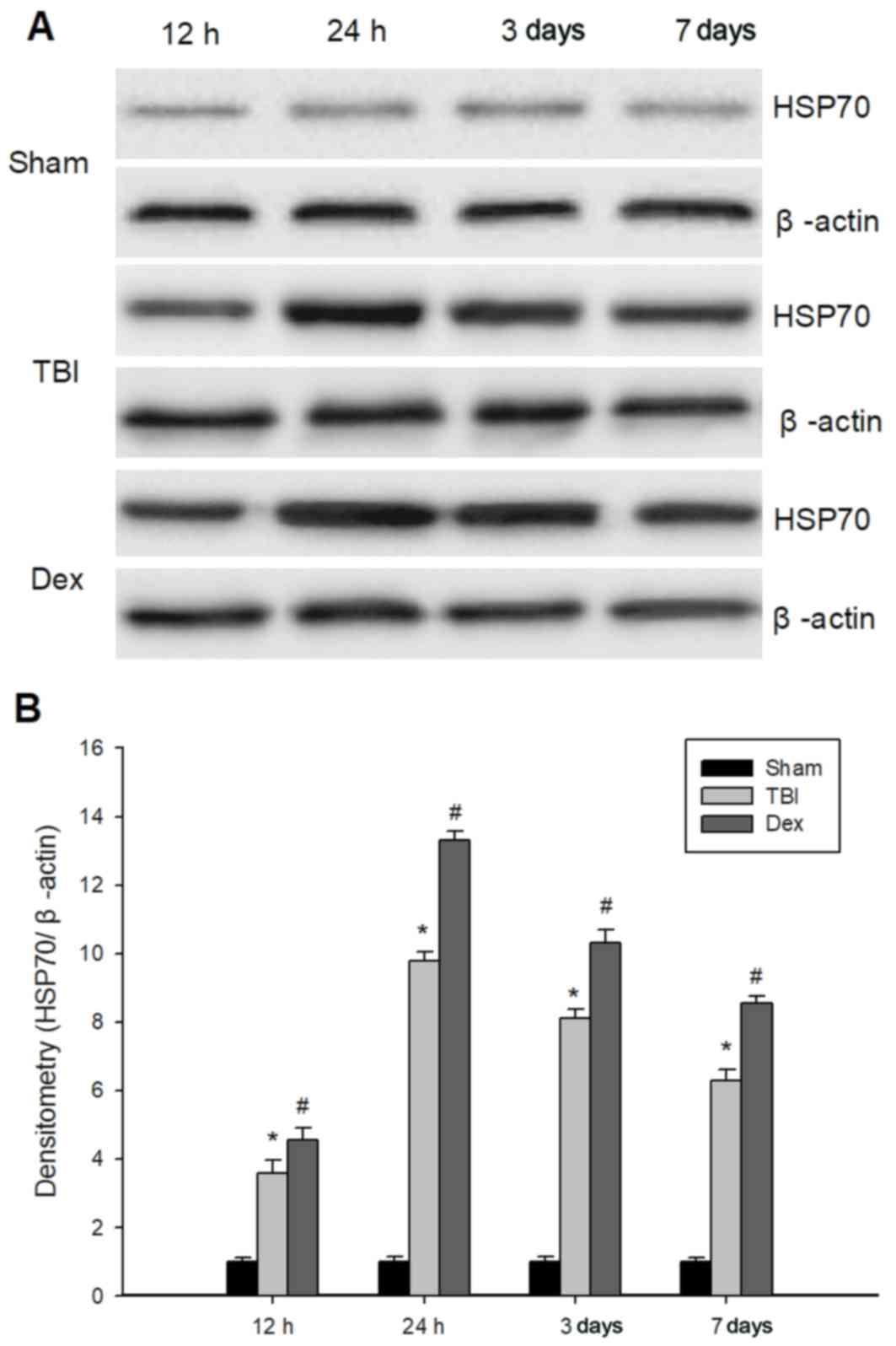|
1
|
Cheng G, Fu L, Zhang HY, Wang YM, Zhang LM
and Zhang JN: The role of mitochondrial calcium uniporter in
neuroprotection in traumatic brain injury. Med Hypotheses.
80:115–117. 2013. View Article : Google Scholar : PubMed/NCBI
|
|
2
|
Kumar A and Loane DJ: Neuroinflammation
after traumatic brain injury: Opportunities for therapeutic
intervention. Brain Behav Immun. 26:1191–1201. 2012. View Article : Google Scholar : PubMed/NCBI
|
|
3
|
Summers CR, Ivins B and Schwab KA:
Traumatic brain injury in the United States: An epidemiologic
overview. Mt Sinai J Med. 76:105–110. 2009. View Article : Google Scholar : PubMed/NCBI
|
|
4
|
Stein SC, Georgoff P, Meghan S, Mizra K
and Sonnad SS: 150 years of treating severe traumatic brain injury:
A systematic review of progress in mortality. J Neurotraum.
27:1343–1353. 2010. View Article : Google Scholar
|
|
5
|
Smania N, Avesani R, Roncari L, Ianes P,
Girardi P, Varalta V, Gambini MG, Fiaschi A and Gandolfi M: Factors
predicting functional and cognitive recovery following severe
traumatic, anoxic and cerebrovascular brain damage. J Head Trauma
Rehab. 28:131–140. 2013. View Article : Google Scholar
|
|
6
|
Weber JT: Altered calcium signaling
following traumatic brain injury. Front Pharmacol. 3:602012.
View Article : Google Scholar : PubMed/NCBI
|
|
7
|
Harvey LA and Close JC: Traumatic brain
injury in older adults: Characteristics, causes and consequences.
Injury. 43:1821–1826. 2012. View Article : Google Scholar : PubMed/NCBI
|
|
8
|
Mangat HS: Severe traumatic brain injury.
Continuum (Minneap Minn). 18:532–546. 2012.PubMed/NCBI
|
|
9
|
Zink BJ, Szmydynger-Chodobska J and
Chodobski A: Emerging concepts in the pathophysiology of traumatic
brain injury. Psychiatr Clin North Am. 33:741–756. 2010. View Article : Google Scholar : PubMed/NCBI
|
|
10
|
Hart T, Brenner L, Clark AN, Bogner JA,
Novack TA, Chervoneva I, Nakase-Richardson R and Arango-Lasprilla
JC: Major and minor depression after traumatic brain injury. Arch
Phys Med Rehabi. 92:1211–1219. 2011. View Article : Google Scholar
|
|
11
|
Bye N, Carron S, Han X, Agyapomaa D, Ng
SY, Yan E, Rosenfeld JV and Morganti-Kossmann MC: Neurogenesis and
glial proliferation are stimulated following diffuse traumatic
brain injury in adult rats. J Neurosci Res. 89:986–1000. 2011.
View Article : Google Scholar : PubMed/NCBI
|
|
12
|
Loane DJ and Faden AI: Neuroprotection for
traumatic brain injury: Translational challenges and emerging
therapeutic strategies. Trends Pharmacol Sci. 31:596–604. 2010.
View Article : Google Scholar : PubMed/NCBI
|
|
13
|
Blennow K, Hardy J and Zetterberg H: The
neuropathology and neurobiology of traumatic brain injury. Neuron.
76:886–899. 2012. View Article : Google Scholar : PubMed/NCBI
|
|
14
|
Xu X, Jiang R, Gong P, Liu Q, Chen Y, Hou
S, Yuan D, Shi J and Lan Q: Up-regulation of FOS-like antigen 1
contributes to neuronal apoptosis in the cortex of rat following
traumatic brain injury. Metab Brain Dis. 33:115–125. 2018.
View Article : Google Scholar : PubMed/NCBI
|
|
15
|
Sato A: Novel anticancer strategy
targeting switch mechanisms in two types of cell death: Necrosis
and apoptosis. Yakugaku Zasshi. 1315–1321. 2017. View Article : Google Scholar : PubMed/NCBI
|
|
16
|
Anderson MA, Huang D and Roberts A:
Targeting BCL2 for the treatment of lymphoid malignancies. Semin
Hematol. 51:219–227. 2014. View Article : Google Scholar : PubMed/NCBI
|
|
17
|
Hartings JA, Bullock MR, Okonkwo DO,
Murray LS, Murray GD, Fabricius M, Maas AI, Woitzik J, Sakowitz O,
Mathern B, et al: Spreading depolarisations and outcome after
traumatic brain injury: A prospective observational study. Lancet
Neurol. 10:1058–1064. 2011. View Article : Google Scholar : PubMed/NCBI
|
|
18
|
Andriessen TM, Horn J, Franschman G, van
der Naalt J, Haitsma I, Jacobs B, Steyerberg EW and Vos PE:
Epidemiology, severity classification and outcome of moderate and
severe traumatic brain injury: A prospective multicenter study. J
Neurotraum. 28:2019–2031. 2011. View Article : Google Scholar
|
|
19
|
Zhang J, Jiang R, Liu L, Watkins T, Zhang
F and Dong JF: Traumatic brain injury-associated coagulopathy. J
Neurotraum. 29:2597–2605. 2012. View Article : Google Scholar
|
|
20
|
Wang Z, Kou D, Li Z, He Y, Yu W and Du H:
Effects of propofol-dexmedetomidine combination on ischemia
reperfusion-induced cerebral injury. NeuroRehabilitation.
35:825–834. 2014.PubMed/NCBI
|
|
21
|
Zhu YM, Wang CC, Chen L, Qian LB, Ma LL,
Yu J, Zhu MH, Wen CY, Yu LN and Yan M: Both PI3K/Akt and ERK1/2
pathways participate in the protection by dexmedetomidine against
transient focal cerebral ischemia/reperfusion injury in rats. Brain
Res. 1494:1–8. 2013. View Article : Google Scholar : PubMed/NCBI
|
|
22
|
Goyagi T and Tobe Y: Dexmedetomidine
improves the histological and neurological outcomes 48 h after
transient spinal ischemia in rats. Brain Res. 1566:24–30. 2014.
View Article : Google Scholar : PubMed/NCBI
|
|
23
|
Liao Z, Cao D, Han X, Liu C, Peng J, Zuo
Z, Wang F and Li Y: Both JNK and P38 MAPK pathways participate in
the protection by dexmedetomidine against isoflurane-induced
neuroapoptosis in the hippocampus of neonatal rats. Brain Res Bull.
107:69–78. 2014. View Article : Google Scholar : PubMed/NCBI
|
|
24
|
Cui C, Cui Y, Gao J, Sun L, Wang Y, Wang
K, Li R, Tian Y, Song S and Cui J: Neuroprotective effect of
ceftriaxone in a rat model of traumatic brain injury. Neurol Sci.
35:695–700. 2014. View Article : Google Scholar : PubMed/NCBI
|
|
25
|
Marmarou A, Foda MA, van den Brink W,
Campbell J, Kita H and Demetriadou K: A new model of diffuse brain
injury in rats. Part I: Pathophysiology and biomechanics. J
Neurosurg. 80:291–300. 1994. View Article : Google Scholar : PubMed/NCBI
|
|
26
|
Yang NL, Xu DM and Ming GF: Intervention
effect of dexmedetomidine on inflammatory response following
traumatic brain injury in rats. Pract Prev Med. 17:243–245.
2010.
|
|
27
|
Roof RL, Duvdevani R, Heyburn JW and Stein
DG: Progesterone rapidly decreases brain edema: Treatment delayed
up to 24 h is still effective. Exp Neurol. 138:246–251. 1996.
View Article : Google Scholar : PubMed/NCBI
|
|
28
|
Zhang X, Chen Y, Jenkins LW, Kochanek PM
and Clark RS: Bench-to-bedside review: Apoptosis/programmed cell
death triggered by traumatic brain injury. Crit Care. 9:66–75.
2005. View
Article : Google Scholar : PubMed/NCBI
|
|
29
|
Stoica BA and Faden AI: Cell death
mechanisms and modulation in traumatic brain injury.
Neurotherapeutics. 7:3–12. 2010. View Article : Google Scholar : PubMed/NCBI
|
|
30
|
Fanselow MS and Dong HW: Are the dorsal
and ventral hippocampus functionally distinct structures? Neuron.
65:7–19. 2010. View Article : Google Scholar : PubMed/NCBI
|
|
31
|
Shamas-Din A, Brahmbhatt H, Leber B and
Andrews DW: BH3-only proteins: Orchestrators of apoptosis. Biochim
Biophys Acta. 1813:508–520. 2011. View Article : Google Scholar : PubMed/NCBI
|
|
32
|
Feder ME and Hofmann GE: Heat-shock
proteins, molecular chaperones and the stress response:
Evolutionary and ecological physiology. Annu Rev Physiol.
61:243–282. 1999. View Article : Google Scholar : PubMed/NCBI
|
|
33
|
Xiong B, Shi QQ and Miao CH:
Dexmedetomidine renders a brain protection on hippocampal formation
through inhibition of nNOS-NO signalling in endotoxin-induced shock
rats. Brain Inj. 28:1003–1008. 2014. View Article : Google Scholar : PubMed/NCBI
|
|
34
|
Wang X, Ji J, Fen L and Wang A: Effects of
dexmedetomidine on cerebral blood flow in critically ill patients
with or without traumatic brain injury: A prospective controlled
trial. Brain Inj. 27:1617–1622. 2013. View Article : Google Scholar : PubMed/NCBI
|
|
35
|
James ML, Olson DM and Graffagnino C: A
pilot study of cerebral and haemodynamic physiological changes
during sedation with dexmedetomidine or propofol in patients with
acute brain injury. Anaesth Intens Care. 40:949–957. 2012.
|
|
36
|
Nasrallah N A, Thomas M, Kuehl S and Diab
K: The use of dexmedetomidine for longer than 48 h with evaluation
of its secondary outcome in patients with liver disease. Chest.
150:228A2016. View Article : Google Scholar
|
|
37
|
Guler L, Bozkirli F, Bedirli N, Unal Y,
Guler A, Oztas Y, Balta S, Cakar M, Demirkol S, Arslan Z and Unlu
M: Comparison of the effects of dexmedetomidine vs. ketamine in
cardiac ischemia/reperfusion injury in rats-preliminary study. Adv
Clin Exp Med. 23:683–689. 2014. View Article : Google Scholar : PubMed/NCBI
|
|
38
|
Si YN, Bao HG, Xu L, Wang XL, Shen Y, Wang
JS and Yang XB: Dexmedetomidine protects against
ischemia/reperfusion injury in rat kidney. Eur Rev Med Pharmaco
Sci. 18:1843–1851. 2014.
|
|
39
|
Jiang L, Li L, Shen J, Qi Z and Guo L:
Effect of dexmedetomidine on lung ischemiareperfusion injury. Mol
Med Rep. 9:419–426. 2014. View Article : Google Scholar : PubMed/NCBI
|
|
40
|
Cai Y, Xu H, Yan J, Zhang L and Lu Y:
Molecular targets and mechanism of action of dexmedetomidine in
treatment of ischemia/reperfusion injury. Mol Med Rep. 9:1542–1550.
2014. View Article : Google Scholar : PubMed/NCBI
|
|
41
|
Shen M, Wang S, Wen X, Han XR, Wang YJ,
Zhou XM, Zhang MH, Wu DM, Lu J and Zheng YL: Dexmedetomidine exerts
neuroprotective effect via the activation of the PI3K/Akt/mTOR
signaling pathway in rats with traumatic brain injury. Biomed
Pharmacother. 95:885–893. 2017. View Article : Google Scholar : PubMed/NCBI
|















